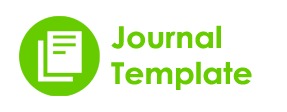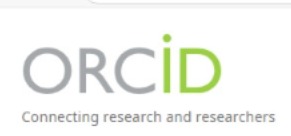21st Century Teachers In The Perspective Of Modern And Islamic Education: Answering The Challenges Of The Digital Era And Globalization
DOI:
https://doi.org/10.63889/pedagogy.v18i1.311Keywords:
teachers, the role of teachers, 21st-century, teacher learningAbstract
Education today is a very crucial aspect and a major need, especially in this modern era. To remain relevant, education must be able to adapt to the development of digital technology, so that it can produce competent students through collaboration between schools and teachers in the learning process. The rapid advancement of science and technology has brought great changes in human life. The role of teachers in the 21st century has undergone a significant transformation from the traditional model that is authoritative and teacher-centered, to a modern model that is student-oriented, collaborative, and adaptive to the times. 21st century teachers are no longer just transmitters of knowledge, but also facilitators of active learning, spiritual and moral guides, and agents of social change who can shape students' character to be ready to face global challenges. In the face of the challenges of the 21st century, teachers must have a deep understanding of digital technology to carry out their roles effectively. The competencies required include personality, professionalism, social skills, and pedagogic abilities that must be continuously updated to be able to meet the learning needs of students and the demands of society in this era
References
[1] F. N. A. Kurniawati, “Meninjau Permasalahan Rendahnya Kualitas Pendidikan Di Indonesia Dan Solusi,” Acad. Educ. J., vol. 13, no. 1, pp. 1–13, Jan. 2022, https://doi.org/10.47200/aoej.v13i1.765.
[2] E. Suncaka, “Meninjau Permasalahan Rendahnya Kualitas Pendidikan Di Indonesia,” J. Manajement Dan Pendidik., vol. 02, no. 03, pp. 36–49, 2023, [Online]. Available: https://journal.an-nur.ac.id/index.php/unisanjournal
[3] R. Diki Maulansyah, D. Febrianty, and M. Asbari, “Peran Guru dalam Peningkatan Mutu Pendidikan: Penting dan Genting!,” J. Inf. Syst. Manag., vol. 2, no. 5, pp. 31–35, 2023.
[4] M. LUBIS, “Peran Guru Pada Era Pendidikan 4.0,” EDUKA J. Pendidikan, Hukum, Dan Bisnis, vol. 4, no. 2, pp. 0–5, 2020, https://doi.org/10.32493/eduka.v4i2.4264.
[5] S. Nurzannah, “Peran Guru Dalam Pembelajaran,” ALACRITY J. Educ., vol. 2, no. 3, pp. 26– 34, Dec. 2022, https://doi.org/10.52121/alacrity.v2i3.108.
[6] T. T. Nhu Ngoc and A. A. Samad, “A qualitative case study into exploring the learning styles and learning strategies of non-English major Vietnamese college students,” Univers. J. Educ. Res., vol. 8, no. 1 A, pp. 76–86, 2020, https://doi.org/10.13189/ujer.2020.081311.
[7] S. Criollo-C, A. Guerrero-Arias, Á. Jaramillo-Alcázar, and S. Luján-Mora, “Mobile learning technologies for education: Benefits and pending issues,” Appl. Sci., vol. 11, no. 9, pp. 1–17, 2021, https://doi.org/10.3390/app11094111.
[8] N. Afif, “Pengajaran dan Pembelajaran di Era Digital,” IQ (Ilmu Al-qur’an) J. Pendidik. Islam, vol. 2, no. 01, pp. 117–129, Jan. 1970, https://doi.org/10.37542/iq.v2i01.28.
[9] W. M. B. B. Sinaga and A. Firmansyah, “Perubahan Paradigma Pendidikan di Era Digital,” J. Teknol. Pendidik., vol. 1, no. 4, p. 10, May 2024, https://doi.org/10.47134/jtp.v1i4.492.
[10] T. Angraini, L. N. S. Saragi, M. Jannah, and M. Sopian, “Perubahan Paradigma Peran Guru Dalam Pembelajaran Era Digital,” Pros. Semin. Nas. 20 Progr. Pascasarj. Univ. PGRI Palembang 25 Novemb. 2017, no. November, pp. 188–192, 2017.
[11] E. Tarihoran, “Guru Dalam Pengajaran Abad 21,” SAPA - J. Kateketik dan Pastor., vol. 4, no. 1, pp. 46–58, May 2019, https://doi.org/10.53544/sapa.v4i1.68.
[12] R. Awaliati, “Tantangan Guru Indonesia Pada Abad 21,” Univ. Lambung Mangkurat Banjarmasin, vol. 21, pp. 1–6, 2022, https://doi.org/10.31237/osf.io/3qu7b.
[13] T. Santoso, Penelitian Kualitatif. 2022, https://doi.org/10.37278/insearch.v21i1.483. [14] P. D. Lapang and I. W. Suyadnya, “Metodologi Penelitian Kualitatif : Berbagi Penyunting :,” p. 48, 2018.
[15] and Y. Indrawan, Asep, Metodologi Penelitian: Kuantitatif dan Kualitatif. Pustaka Cendekia, no. April 2023. 2017.
[16] M. Zamili, Menghindar Dari Bias: Praktik Triangulasi Dan Kesahihan Riset Kualitatif, vol. 9, no. 2. 2015. https://doi.org/10.35316/lisanalhal.v9i2.97.
[17] P. Imaniyati, “Peran Guru Dalam Pengajaran di Abad ke-21,” Univ. Lambung Mangkurat, pp. 1–5, 2022, https://doi.org/10.31237/osf.io/ytzbm.
[18] M. Sakellariou and E. Tsiara, “Student disaffection: The contribution of Greek in-service kindergarten teachers in engaging each preschooler in learning,” Behav. Sci. (Basel)., vol. 10, no. 2, 2020, https://doi.org/10.3390/bs10020051.
[19] S. Radović, N. Seidel, D. Menze, and R. Kasakowskij, “Investigating the effects of different levels of students’ regulation support on learning process and outcome: In search of the optimal level of support for self-regulated learning,” Comput. Educ., vol. 215, no. February 2024, https://doi.org/10.1016/j.compedu.2024.105041.
[20] T. Hui, S. S. S. Lau, and M. Yuen, “Active learning as a beyond‐the‐classroom strategy to improve university students’ career adaptability,” Sustain., vol. 13, no. 11, 2021, https://doi.org/10.3390/su13116246.
[21] S. J. V. Simorangkir, “Metode Pembelajaran Peer Assisted Learning pada Praktikum Anatomi,” J. Pendidik. Kedokt. Indones. Indones. J. Med. Educ., vol. 4, no. 2, p. 58, 2015, https://doi.org/10.22146/jpki.25282.
[22] W. Jannah, “Menjadi Guru Profesional: Memahami Hakikat dan Kompetensi Guru,” pp. 1–8, 2021, https://doi.org/10.31219/osf.io/fcq4t.
[23] H. Syarifuddin, “Hakikat Pendidik,” pp. 26–33, 2003, https://doi.org/10.30821/ansiru.v5i1.9792.
[24] A. Hamid, “Guru Prefesional,” Tawazun J. Pendidik. Islam, vol. 12, no. 1, p. 94, Jun. 2019, https://doi.org/10.32832/tawazun.v12i1.1891.
[25] Y. B. D. M. I. Sipahutar, “Kompetensi Profesional Guru Pendidikan Agama Islam,” J. Basicedu, vol. 5, no. 5, pp. 3(2), 524–532, 2020.
[26] A. Mukarromah and M. Andriana, “Peranan Guru dalam Mengembangkan Media Pembelajaran,” J. Sci. Educ. Res., vol. 1, no. 1, pp. 43–50, Feb. 2022, https://doi.org/10.62759/jser.v1i1.7.
[27] S. Anwar, “Kepemimpinan Digital Menghadapi Persaingan Global Di Perguruan Tinggi,” vol.
2.
[28] R. A. Bull Schaefer and L. K. Copeland, “Performance reviews as an active method to improve feedback and performance,” Act. Learn. High. Educ., vol. 25, no. 1, pp. 41–52, 2024, https://doi.org/10.1177/14697874221091898.
[29] L. Sulistianah, M. Taufik, and A. Nurhasanah, “Pengaruh Model Problem Based Learning (PBL) Terhadap Peningkatan Keterampilan Berpikir Kritis Peserta Didik Di Sekolah Dasar,” Pendas J. Ilm. Pendidik. Dasar, vol. 7, no. 2, pp. 373–385, 2022, https://doi.org/10.23969/jp.v7i2.6801. [30] S. Anwar, “Pendidikan Karakter Prespektif Islam (Pemikiran Al-Ghazali Dan Ibnu Maskawaih),” J. Pedagog., vol. 21, 2022.
[31] E. Abouzeid, S. Fouad, N. F. Wasfy, R. Alkhadragy, M. Hefny, and D. Kamal, “Influence of personality traits and learning styles on undergraduate medical students’ academic achievement,” Adv. Med. Educ. Pract., vol. 12, pp. 769–777, 2021, https://doi.org/10.2147/AMEP.S314644.
[32] L. Darling-Hammond, L. Flook, C. Cook-Harvey, B. Barron, and D. Osher, “Implications for the educational practice of the science of learning and development,” Appl. Dev. Sci., vol. 24, no. 2, pp. 97–140, 2020, https://doi.org/10.1080/10888691.2018.1537791.
[33] Y. A. R. Agustina Putri Reistanti; Monita Nur Shabrina, “Aktualisasi Penguatan Profil Pelajar Pancasila Berbasis Pendidikan Kewirausahaan Untuk Membentuk Karakter Mandiri Dan Kreatif Anak Usia Dini,” vol. 17, no. April, pp. 118–127, 2024.
[34] E. L. Deci and R. M. Ryan, Self-Determination Theory: Basic Psychological Needs in Motivation, Development, and Wellness. Guilford Publications, 2017.
[35] S. Anwar and S. Rosyidah, “Development Of Islamic Personality In The Digital Era With A Monotheism-Based Character Education Model,” vol. 17, no. 2, 2024.
[36] D. N. H. Yeri Utami, “Implementasi Pendidikan Karakter Berbasis Budaya Sekolah Dalam Mengembangkan Soft Skill Siswa Di Mi Ma’arif Al-Ma’shum Jepon Kabupaten Blora,” vol. 17, no. April, pp. 118–127, 2024.
[37] J. Hattie, Visible Learning: Feedback. Routledge, 2018. https://doi.org/10.4324/9780429485480.
[38] J. Hattie and H. Timperley, “The power of feedback,” Rev. Educ. Res., vol. 77, no. 1, pp. 81– 112, 2018, https://doi.org/10.3102/003465430298487.
[39] S. Litina and Z. Rubene, “The Effect of Digital School Culture on Science Education and Scientific Literacy: A Scoping Review,” J. Educ. Cult. Soc., vol. 15, no. 1, pp. 41 – 55, 2024, https://doi.org/10.15503/jecs2024.1.41.55.
[40] L. Darling-Hammond, M. E. Hyler, and M. Gardner, Effective Teacher Professional Development. Learning Policy Institute, 2017. https://doi.org/10.54300/122.311.
[41] P. Dillenbourg, Orchestrating Collaboration in Technology-Enhanced Learning. Springer, 2020.
Downloads
Published
How to Cite
Issue
Section
License
Copyright (c) 2025 Agustina Putri Reistanti, Achmad Irchamni, Kristina Gita Permatasari, Muhammad Maga Sule

This work is licensed under a Creative Commons Attribution-ShareAlike 4.0 International License.






